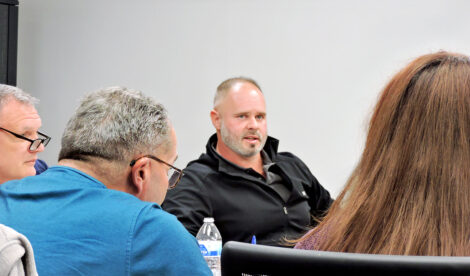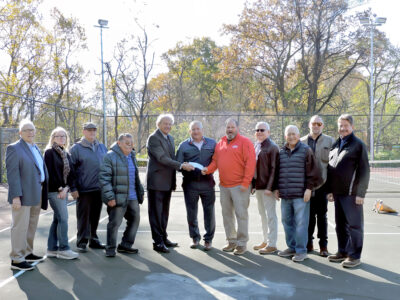West Virginia files application for Rural Health Transformation program
CHARLESTON — Gov. Patrick Morrisey and health and human resources officials in West Virginia announced Wednesday that the state was submitting its application for federal funding through the Rural Health Transformation program.
Speaking at a press conference Wednesday afternoon at the State Capitol Building, Morrisey provided details on West Virginia’s submission for the Rural Health Transformation program seeking at least $500 million – $100 million every year for five years – in federal funding.
Morrisey said the state’s application could produce “generational change” by making health care more affordable and accessible, focusing on improving health outcomes to boost workforce participation.
“By submitting a Rural Health Transformation application, we have a chance to truly engage in innovative and generational change for our citizens,” Morrisey said. “The federal government…presents us with a once-in-a-lifetime opportunity to change the health narrative that’s been carried in around our rural communities for far too long.”
The $50 billion Rural Health Transformation program is made possible by the One Big Beautiful Bill Act, now called the Working Families Tax Cuts Act. The U.S. Department of Health and Human Services and Centers for Medicare and Medicaid announced in September that the application process for states to apply for the Rural Health Transformation program was open.
The Rural Health Transformation program will provide $10 billion a year to states each federal fiscal year from 2026, which begins Oct. 1, through 2030. Half of the available funding would be distributed evenly to all 50 states, if they apply for it. The other half would be distributed based on health care metrics. Morrisey said the state could receive at least $100 million per year if West Virginia’s application is accepted. Wednesday marked the deadline for states to apply.
The state’s application outlines seven core initiatives, including establishing a connected care grid by expanding access to in-person and telehealth options, as well as an EMS “treatment-in-place” program to reduce emergency room visits; creating a unified health mobility platform to increase transportation options for residents needing access to care; forming a Mountaineer Care Force to attract and train clinical talent; and implementing Smart Care Catalyst to modernize technology and shift to value-based care.
Additionally, the state’s application features a Health to Prosperity Pipeline, similar to former governor Jim Justice’s Jobs and Hope program by linking recovery and employment; a Food as Medicine program for promoting health eating and physical fitness for adults and school children; and Health Tech Appalachia, a program to foster economic growth through health care technology innovation.
“We want to make sure that health care outcomes are the very foundation of the economic strength that we’re driving in West Virginia,” Morrisey said. “West Virginia is going to confront the barriers directly that keep West Virginians out of the workforce.
“I’ve mentioned it before; I’ll mention it again: poor health is the single largest driver of low labor force participation,” Morrisey continued. “We have one of the highest disability incident rates in America. We have to address that, and that’s why improving healthcare outcomes must be a primary focus.”
The Governor’s Office contracted with McKinsey and Company in developing its application for the Rural Health Transformation at a cost of $2 million. The Governor’s Office solicited public comment, which generated more than 3,000 pages of feedback. Health officials also held three roundtables with stakeholder organizations and a teletown hall with more than 17,000 participants.
The state’s application has also received broad bipartisan and cross-sector support, including more than 40 letters of support from key entities, including West Virginia’s congressional delegation, leadership in the West Virginia Legislature, AARP, the state departments of Agriculture and Education, the Higher Education Policy Commission, the Center for Rural Health Development, the Home Care Association of West Virginia, Marshall University, West Virginia University, and Boone Memorial Health.
“The Rural Health Transformation Program is not just about health care. It’s about rebuilding the foundation of health, work and community across our state,” said Dr. Arvin Singh, secretary of the state Department of Health who will be administering the state’s Rural Health Transformation program. “It uses data and technology to connect care, cut waste, and measure real results.”
“Where you live should not determine your health care outcome or the care you receive,’ said Alex Mayer, secretary of the state Department of Human Services. “This isn’t just a health initiative, it’s a community initiative. It’s about ensuring that every child, every family, and every senior in West Virginia has access to the care they need, not just to survive, but to live well.”
Officials said the state’s full Rural Health Transformation application will be released in the coming days.




